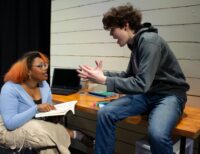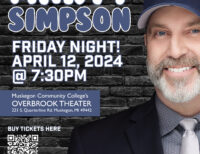Scope of Practice Statement
The MCC Counseling and Advising Center holistically supports the individual student and the campus community toward personal wellness, balance and growth through short term personal counseling, academic advising and mental health education. Our counselors are committed to promoting the intellectual, emotional, occupational, social, cultural, and professional growth and development of our learning community by helping MCC students identify barriers, improve coping skills and the achievement of personal goals. The Scope of Our Practice serves currently enrolled and prospective students.
About Our Counselors
All MCC counselors have a master’s degree and are Licensed Professional Counselors (LPC) or Limited Licensed Professional Counselors (LLPC). Central to our mission and daily practice is a commitment to confidentiality, upholding ethical behavior, and providing counseling based on current research and proven standards. All MCC counselors adhere to the professional and ethical guidelines of the American Counseling Association.
Common Concerns Addressed with Short-Term Intervention
When appropriate, students may be referred to services offered within the MCC Counseling and Advising Center. In order to use its resources most effectively, the Counseling and Advising Center utilizes a short-term model of therapy to assist students in addressing issues common in a college setting.
Some of the issues that are commonly addressed in short-term or intermittent counseling at the Counseling and Advising Center are:
- Personal concerns: mild to moderate anxiety &/or depression, loneliness, grief, low self-esteem, body image, crisis management, test anxiety and stress management
- Relationship concerns: partners, roommates, family, social
- Developmental concerns: adjustment to college, life transitions, life-style choices, personal, cultural, sexual orientation and gender identity
- Academic concerns: motivation, performance/test anxiety, perfectionism, time management
- Career counseling
- Other issues: effects of trauma, assault, spiritual concerns, substance abuse, suicidal ideation, crisis management
Referral to Community Resources
Sometimes a student’s needs fall outside of expertise or resources available at the Counseling and Advising Center. The Counseling Center provides referral services either after the initial session or as these factors become more apparent through the course of services. The Counseling and Advising Center’s counseling staff can provide referral options that we believe will best meet a student’s needs, but the decision for ongoing treatment ultimately resides upon the student.
Need for specialized services that may require an outside referral:
- Students receiving counseling services from another provider
- Students with a desire to be seen more frequently than the Counseling and Advising Center resources can provide (e.g., more than weekly), or on a long-term basis.
- Students for whom a short-term treatment model would be detrimental or inappropriate to the presenting issues
- Students with a history of longstanding, seriously maladaptive interpersonal behaviors, requiring services beyond The Counseling and Advising Center scope
- Chronic/ severe suicidality, severe self-injury, or multiple psychiatric hospitalizations
- Evidence or risk of progressive deterioration in mental or emotional functioning, requiring intensive intervention; including active psychotic symptoms
- Significant drug or alcohol problems needing treatment
- Long standing or persistent eating disorder
- Severe and persistent mental illness, medication management
- Students whose needs fall outside the clinical expertise of The Counseling and Advising Center faculty
- Students seeking or attempting to meet requirements of court-mandated treatment, legal proceedings, disability support, or employment clearance (including evaluation)
- Students wishing to receive documentation for an emotional support animal (ESA)
- Students who engage in inappropriate, harassing, menacing, threatening, or violent behaviors toward staff
- Students who are not currently registered for classes
Additional counseling related activities provided by MCC counselors (Outreach, education, mental health promotion, and training)
To build a healthy campus environment, MCC counselors conduct multiple services and programming to students, staff, and academic departments. Students, faculty and staff are informed about what constitutes good mental health, about the signs of mental health concerns, and what to do when concerning issues arise. Besides our clinical services, MCC counseling staff collaborate with our colleagues to provide:
- Psycho-educational support groups, trainings, and presentations to the college community.
- Workshops on various topics, outreach, facilitating and supporting campus events
- Suicide prevention QPR trainings for students, staff, and faculty
- Mental health prevention/promotion activities such as the Jayhawk Redux, Active Minds and other initiatives






